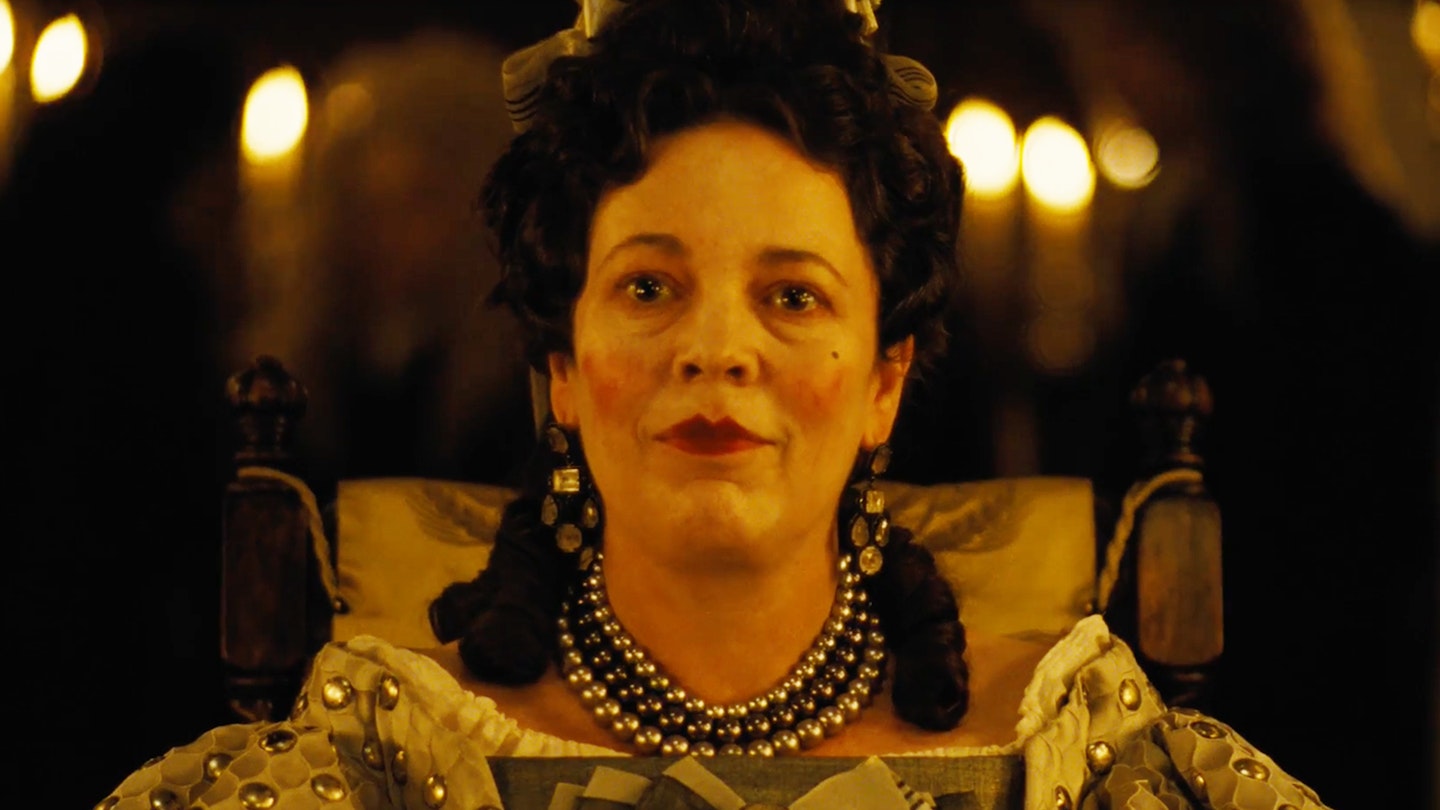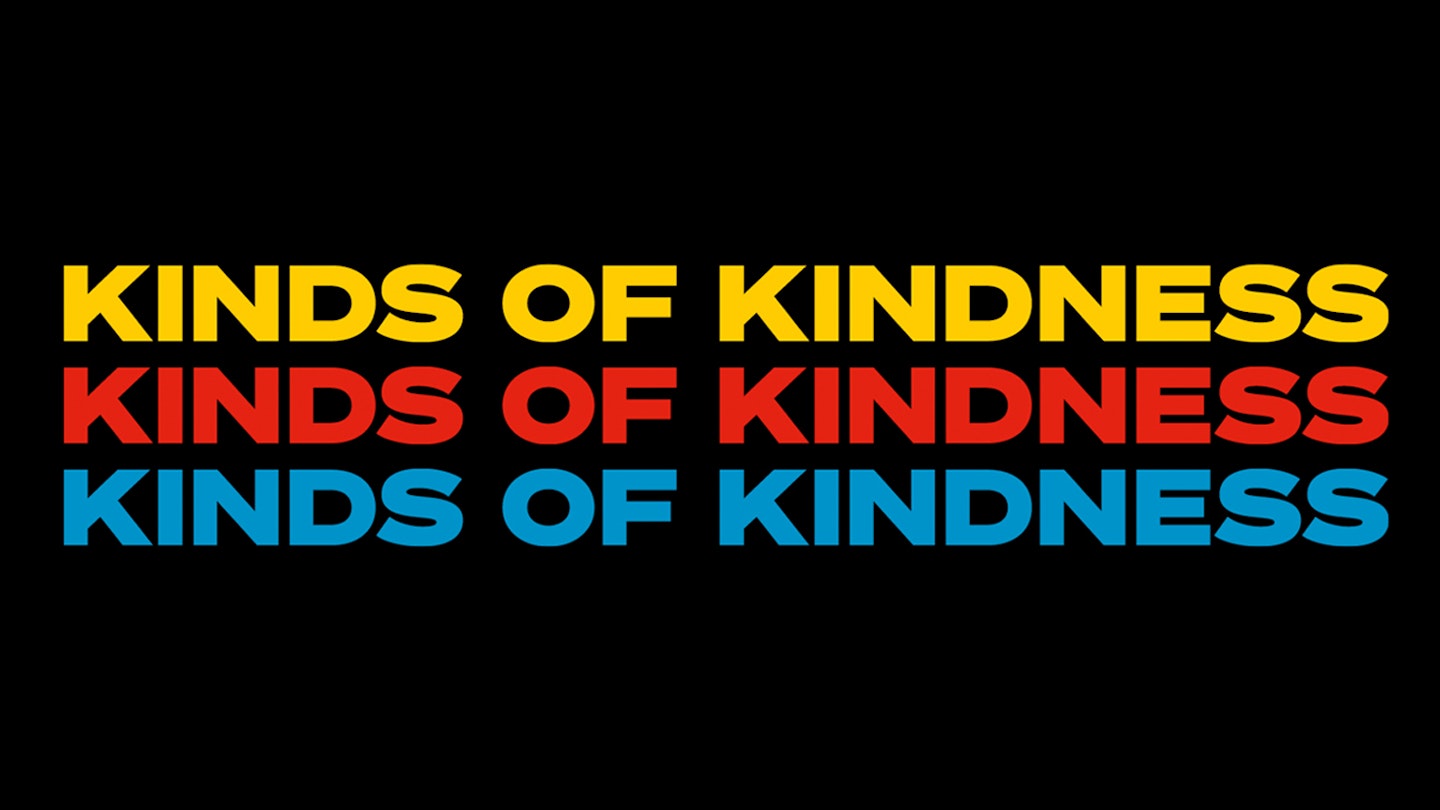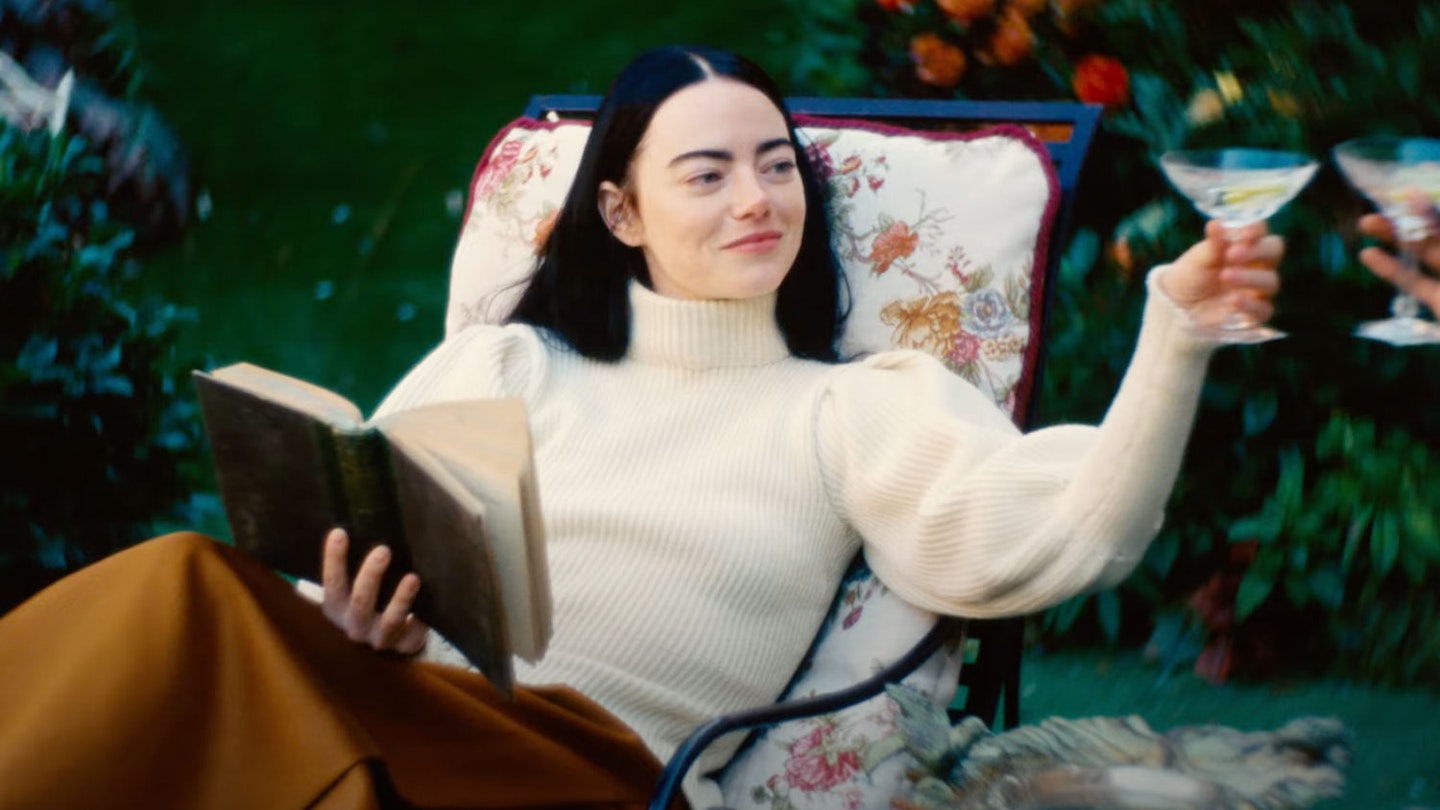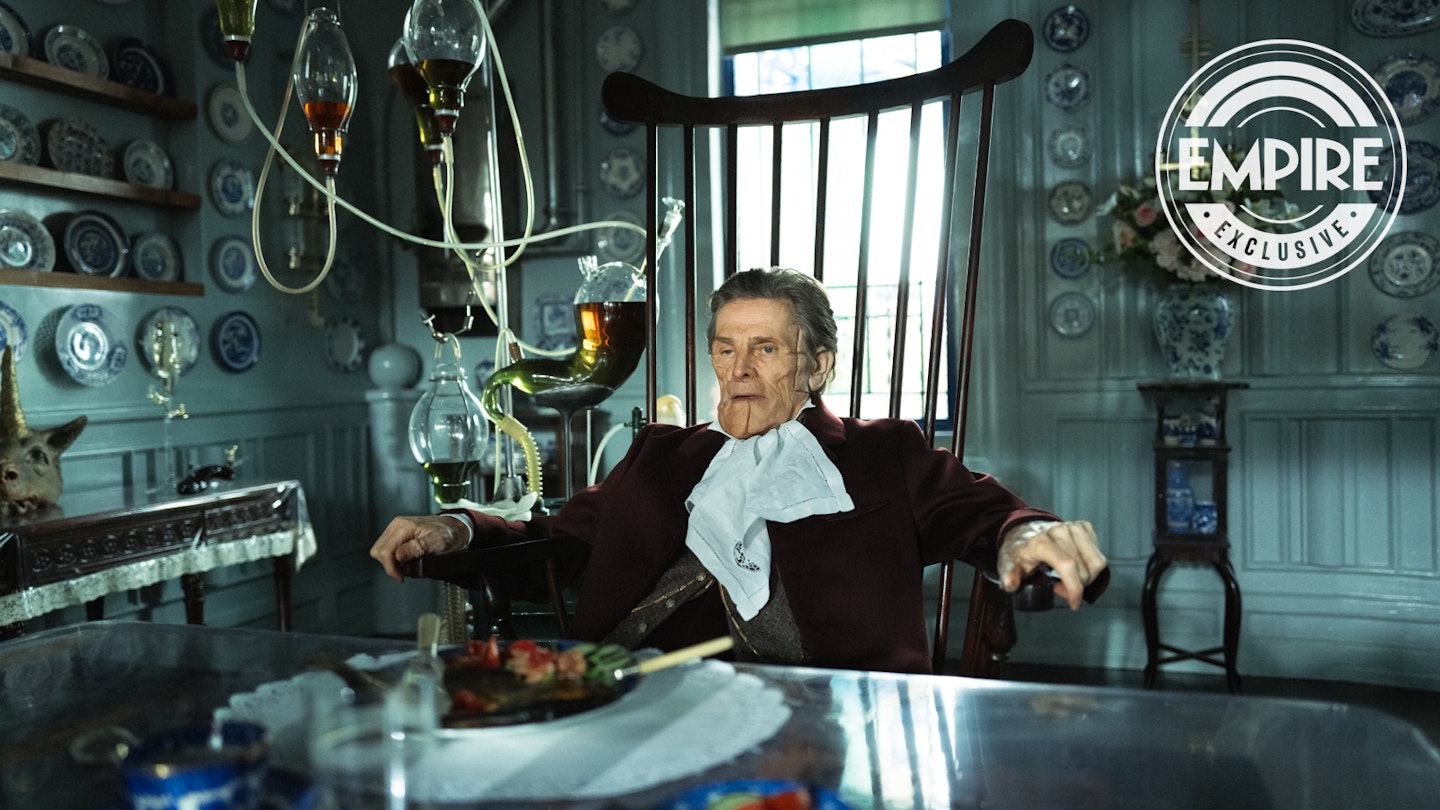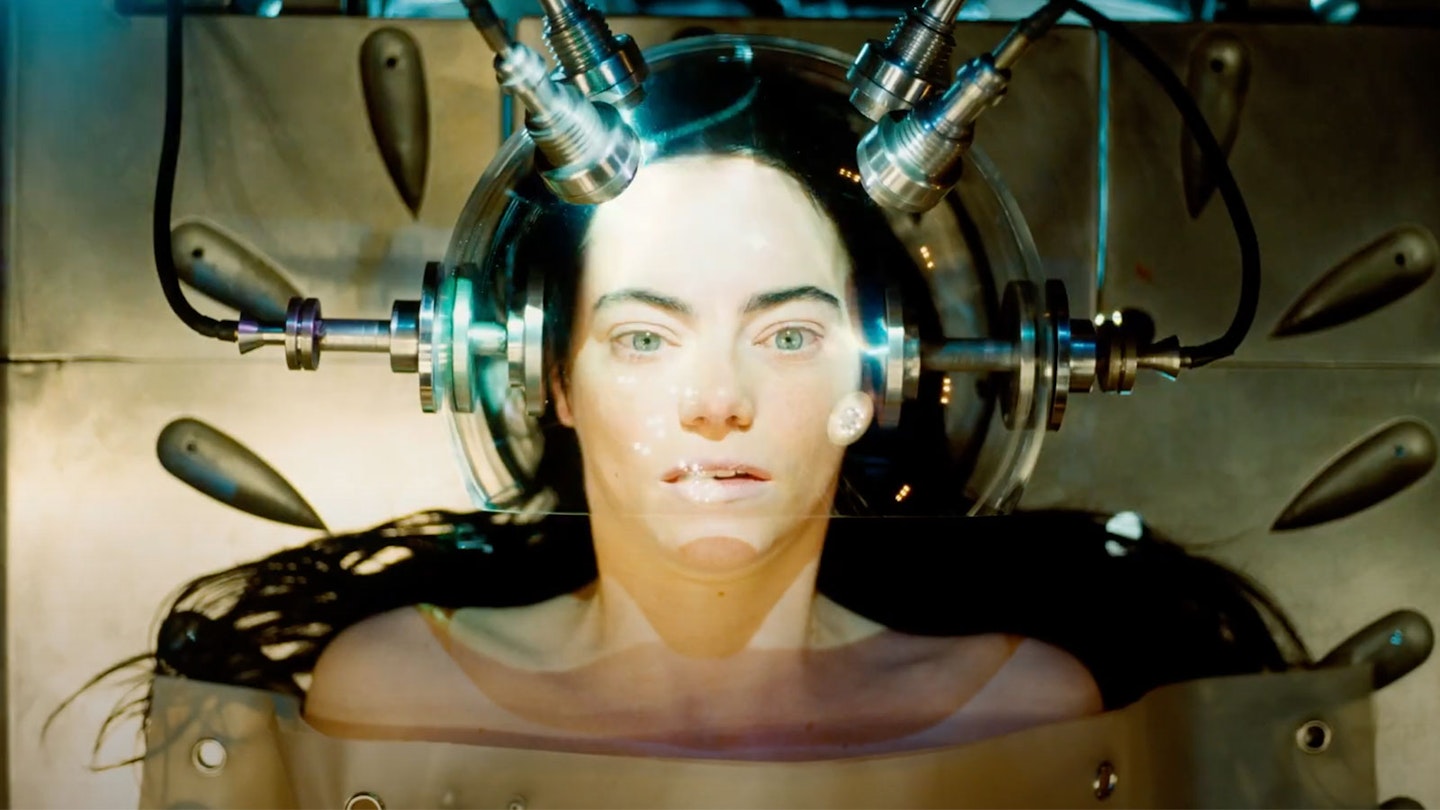If you can decipher the artsy, spaced-out font, a quick gander at the end credits of The Favourite reveals character names including ‘Wanking Man’ (Paul Swaine), ‘Nude Pomegranate Tory’ (Callum Lewin) and ‘Fastest Duck In The City’ (Horatio). This pretty much tells you all you need to know about Greek auteur Yorgos Lanthimos’ down- and-dirty period misadventure. As uncouth and unleashed as Merchant Ivory is buttoned up, it’s part ribald romp, part pointed character study, part cat-and-mouse psychological thriller, part historical-political machinations. Yet buried in its black, raucous heart is a melancholic ode to foiled love and unfathomable loss. Deriving much of its emotional wallop from three pitch-perfect performances from Olivia Colman, Rachel Weisz and Emma Stone, there is so much more to The Favourite than pelting naked conservatives with rotting fruit.
Shot through with playfulness, it takes place in a beautifully debauched world of slow-motion duck races, gloriously modern courtly dances and c-bombs dropped with aplomb. There are lots of cinematic touchstones here — from the coolness and candlelight of Barry Lyndon to Fellini’s Satyricon and All About Eve — but this still feels uniquely Lanthimos, cut from similar cloth to The Lobster and The Killing Of A Sacred Deer. His weapon of choice is the wide angle lens, making Anne’s world even more lonely, a simple walk down a corridor even more treacherous. And he makes The Favourite unrelentingly physical; characters fall in mud, are splattered with blood, vomit, have Sapphic sex (never exploitative), get dragged behind horses and deliver a swift kick in the balls.
Divided into eight chapters, the story spins on a gripping, delicious power struggle between Weisz’s Sarah Churchill and Stone’s Abigail Masham for the attentions of ailing Queen Anne (Colman): the former motivated by love; the latter by status. Stone imbues Abigail’s scheming with relish, spinning from innocent and helpful to devious on a dime. Weisz’s Sarah gives as good as she gets, using in-jokes and her shared history with the Queen to keep in with her. She has the least showy role but Weisz makes Sarah’s complex affection for Anne affecting and true.
Yet, as befits a Queen, Colman rules. She has a ball as the seemingly barmy Queen Anne, be it shouting at page boys, sporting make-up like a badger or devising weird parlour games. Yet she also movingly illuminates how the character’s quirks — 17 rabbits — mask a world of pain. It’s a mercurial performance, at once big yet fragile, providing a little chink of light in a ruthless dark world.
